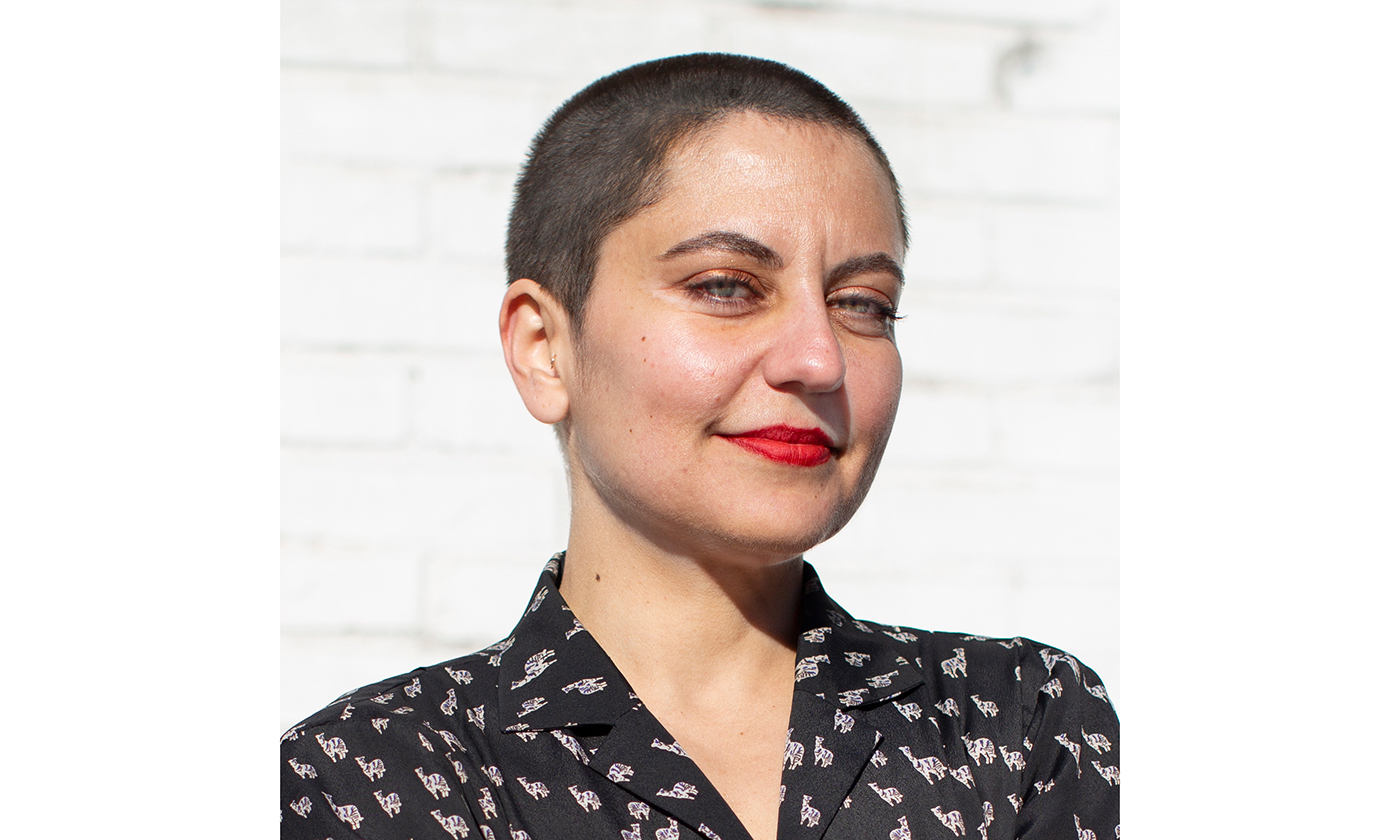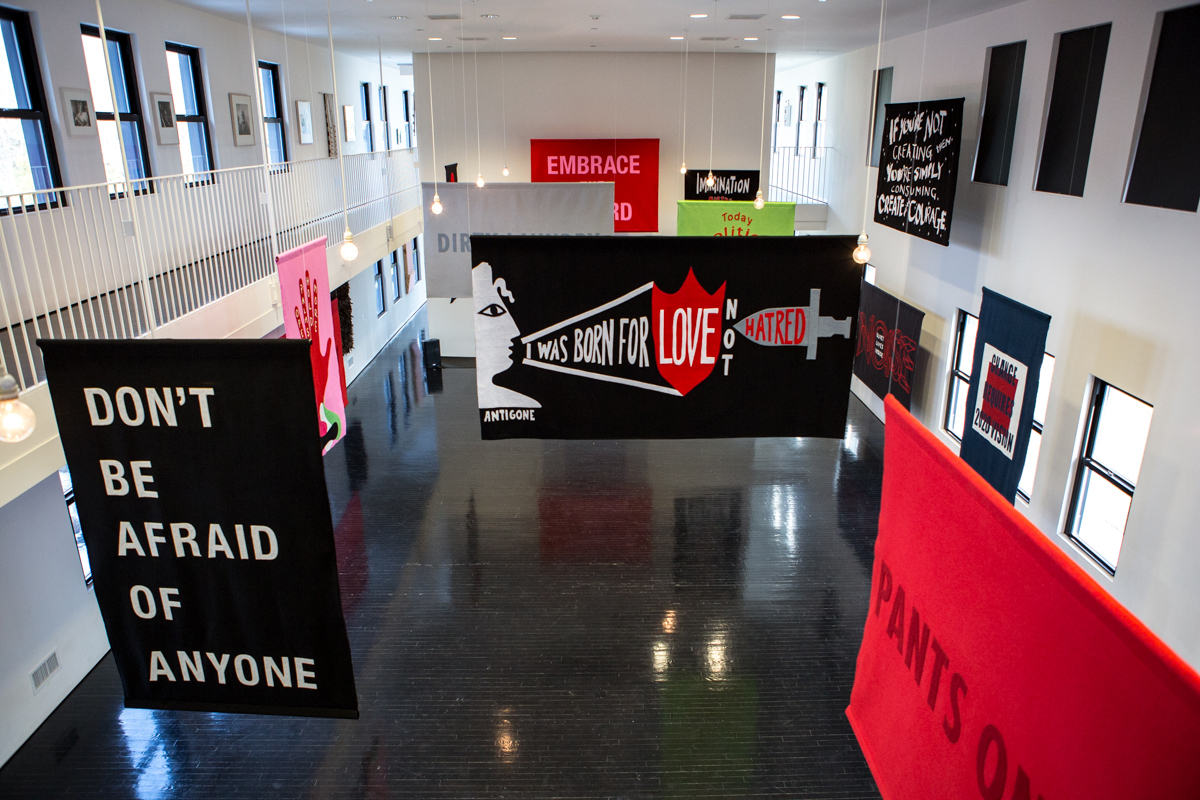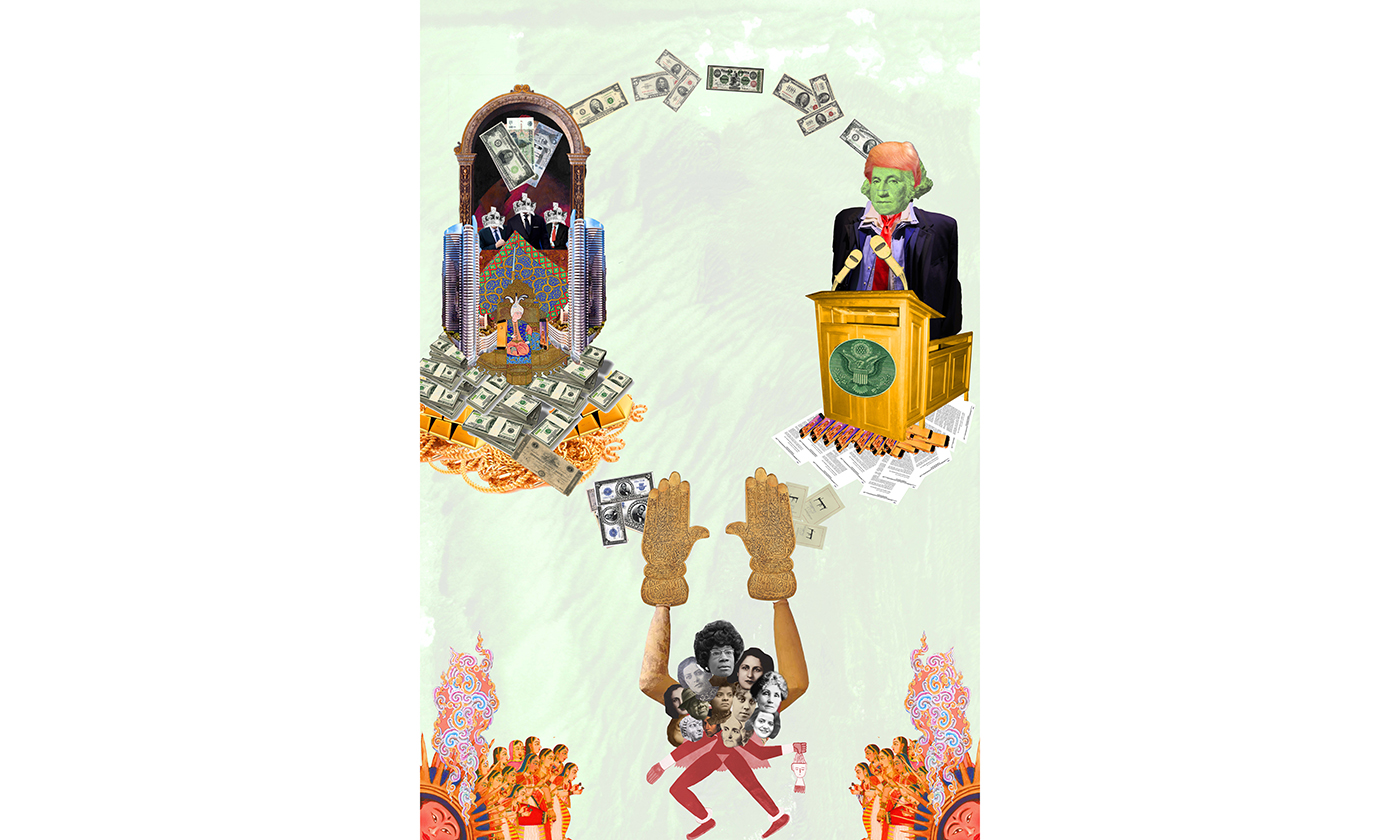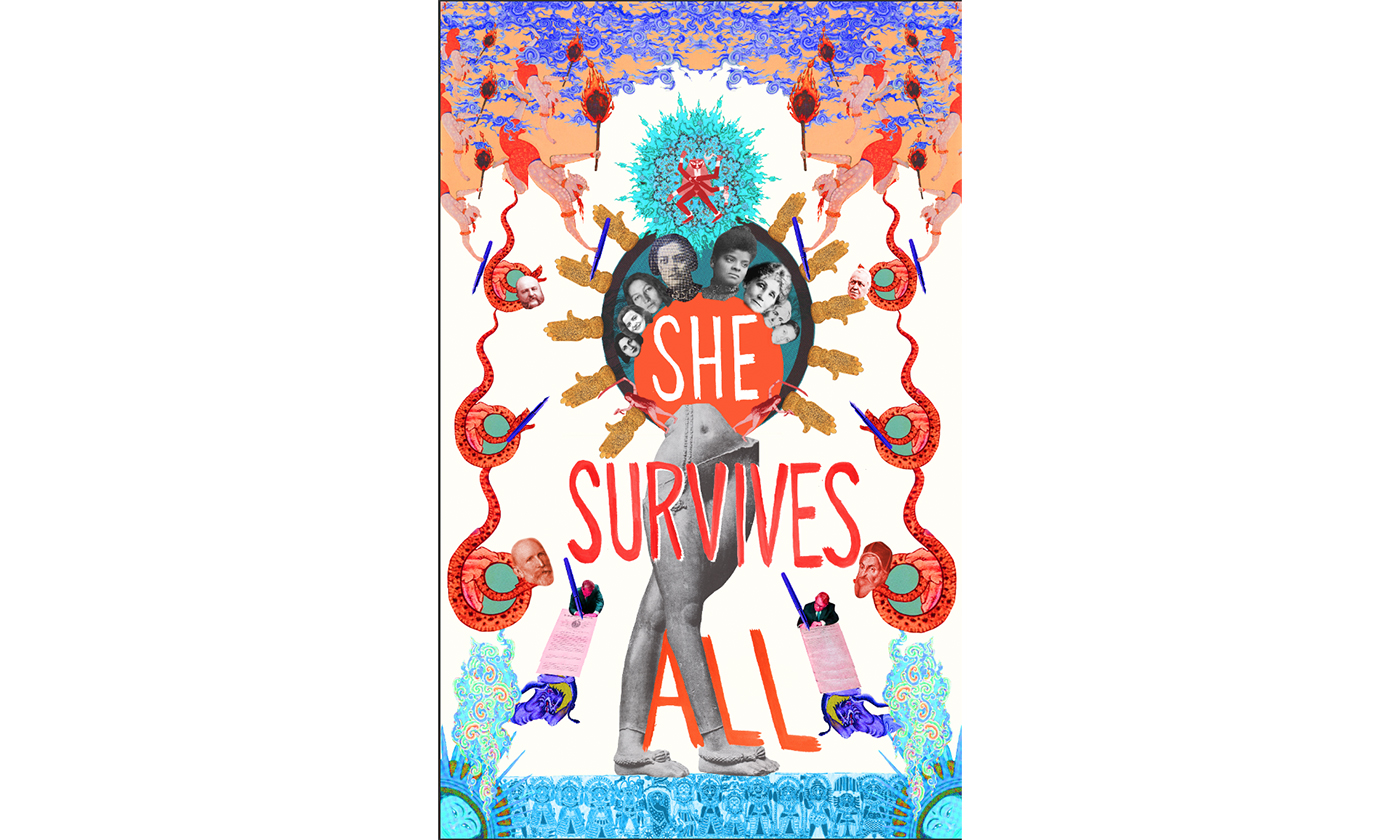Artist Amy Khoshbin, the Pratt Fine Arts Civic Engagement Fellow, is an Iranian-American, Brooklyn-based artist, activist, and educator. Her practice in the arts and education uses performance, video, collage, costume, and sound to build bridges between disparate communities to counteract fear and promote radical acceptance.

In celebration of Women’s History Month, Pratt is sharing the stories of women who are making history today by organizing in their local communities. Follow the Q&A series on the Pratt.edu news page and the @PrattInstitute Instagram for updates throughout March. This is the seventh in the series:
Artist Amy Khoshbin, the Pratt Fine Arts Civic Engagement Fellow, is an Iranian-American, Brooklyn-based artist, activist, and educator. Her practice in the arts and education uses performance, video, collage, costume, and sound to build bridges between disparate communities to counteract fear and promote radical acceptance. She has presented her work at the Whitney Museum of American Art, the Solomon R. Guggenheim Museum, River to River Festival, and South by Southwest, and has collaborated with Laurie Anderson, Karen Finley, and House of Trees, among others.
 Word on the Street banners created in collaboration with House of Trees
Word on the Street banners created in collaboration with House of Trees
Why do you think creativity is important in political activism and community organizing?
As a social practice artist, I consider engagement with political activism and community organizing as forms of creative expression. I always think of the Situationist International (SI) and how they started as an art collective and ended up instigating the largest labor strike in France’s history in May 1968. Their contribution to the revolutionary uprising was remembered mainly through the diffusion and spontaneous expression of Situationist ideas and slogans—in graffiti, pamphlets, and posters—as well as in theory like The Society of the Spectacle by Guy Debord, the co-founder of SI, and also serried assaults on the routines of everyday life as situations or performances in the public realm.
Creativity creates the opportunity for openness, innovation, and testing new approaches to organizing while centering pleasure and play to sustain energy in the movement. We saw this recently with the Black Lives Matter (BLM) uprisings and how image-making, creative spectacle in actions, and Black joy as a revolutionary act fueled a push towards dismantling systemic oppression by raising awareness to the larger public and putting pressure on policymakers. Groups I’m involved in like the Wide Awakes have creative action at the heart of how we orient and engage with activism and organizing.

Amy Khoshbin, “Break the Cycle” (2020), giclée print of collage on paper
Is there anything about your experience at Pratt that has influenced your work?
I actually started at Pratt after the pandemic hit, and I haven’t met most of my colleagues. Navigating the digital realm has taught me how to build community digitally, which is critical to civic engagement during a global pandemic. The Pratt community of inspiring artists and scholars I’m working with has moved me towards engaging in deeper research to provide context around the ideas I’m generating both in the social practice realm and otherwise. Research has always been a part of my creative practice, but I’m getting to engage with it through non-hierarchical modes of collaboration and pedagogy, which will be infinitely helpful to the ways I organize and make work beyond my time at Pratt.
What advice would you give to someone who wants to get involved in grassroots efforts, politics, or community organizing?
Get involved, it’s as simple as that. Pursue issues that bring you pleasure and excite you. Read adrienne maree brown’s books Pleasure Activism and Emergent Strategy. Reach out to friends and family first to investigate what your immediate community is doing to engage—this is called relational organizing. You’re already starting to organize as you do the research into what community means to you and what the communities are you’re already a part of. Ask questions, like what do the people in your communities want to see changed, what are they working towards, and how are they already engaging with organizations, local candidates, elected officials, and artists who have been doing socially-oriented work for years. Through these conversations, both in person and online, you will start to build a network and find your way. Investigate what issues and campaigns you want to support in the movement: mutual aid, BLM, abolition, housing justice, education, funding for the arts, queer rights? Asset map for yourself to figure out what you can bring to the movement with the skills you already have.

Amy Khoshbin, “She Survives All” (2020), giclée print of collage on paper
How does being a woman inform your work as an activist and are there any historical women organizers you are inspired by?
Organizing with powerful women and building power from a non-hierarchical, anti-capitalist model of interdependence has taught me so much about how to interact in the world at large, including how to communicate, how to raise each other up through collective work, and the idea that my well-being is dependent on yours. That being said, not all female-identified folks organize like this! Ego is tough in activist circles, even for me. But I’ve found this modality in female-identified circles much more than in male-led groups. I’ve always looked to Angela Davis, Audre Lorde, Ida B. Wells, Grace Lee Boggs, bell hooks, Emma Tenayu; these women have worked in all different areas, and all of these women have believed in the importance of continuing to actively challenge existing knowledge, which is achieved through dialogue. They’ve inspired me to go on and carry the torch into the future towards radical change!
For more of the Pratt Women Organizing for Change series, see the previous Q&As with NYC Councilmember Laurie A. Cumbo, Mia Bruner of the Prison Library Support Network, Sarah Kanu of the Pratt Student Government Association, Elena Conte of the Pratt Center for Community Development, Ashely Kuo of A+A+A Studio, and Ellen Ren of the Pratt Community Engagement Board.